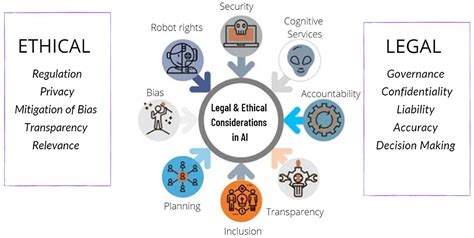Regulatory Challenges: How AI Can Help the Crypto Sector
The cryptocurrency market has experienced rapid growth and innovation in recent years, driven by a combination of factors including decentralized governance models, peer-to-peer transactions, and a growing demand for secure online storage. However, this explosive growth has also created regulatory challenges that need to be addressed. The rapid evolution of blockchain technology and the emergence of new cryptocurrencies have raised questions about the legal framework governing this sector.
Challenges in Regulation
Regulations surrounding cryptocurrency are complex and multifaceted, with different governments having varying approaches to regulating the industry. Some key challenges include:
- Lack of clear regulations: The lack of clear guidelines on what constitutes a “crypto” and how to classify it has led to confusion among market participants.
- Global governance: The global nature of cryptocurrency transactions raises questions about which country’s laws apply, creating jurisdictional complexities.
- Securities and trading: Cryptocurrencies are often traded on exchanges and have inherent risks, making the question of whether they can be considered securities a contentious issue.
The Role of Artificial Intelligence (AI)
Artificial intelligence (AI) offers several benefits in the context of cryptocurrency regulation. For example:
- Data analysis: AI-powered systems can collect, analyze, and interpret large amounts of data from various sources, providing insights into market trends and patterns.
- Predictive modeling: AI algorithms can be trained to predict the likelihood of market movements and other relevant factors, enabling regulatory bodies to make more informed decisions.
- Risk assessment: AI-powered systems can assess the risk levels associated with different cryptocurrency exchanges, trading platforms, and other market participants.
Applications of AI in Cryptocurrency Regulation
There are several ways AI can be applied in cryptocurrency regulation:
- Automated compliance: AI-powered tools can help regulatory bodies identify and address potential compliance issues.
- Predictive analytics: AI algorithms can be used to predict the likelihood of market movements, helping regulators make more informed decisions about market interventions or sanctions.
- Investigations: AI-powered systems can aid in investigations into market manipulation or other illicit activities.
Conclusion
The regulatory challenges faced by the cryptocurrency sector are complex and multifaceted. While AI offers several benefits in this area, it is essential to acknowledge both the potential risks and limitations associated with its use in regulation. By leveraging AI-powered tools and techniques, regulators can gain a better understanding of market dynamics and make more informed decisions about how to govern the industry.
Recommendations
- Develop clear guidelines
: Establish clear regulations that define what constitutes a “crypto” and outline how to classify it.
- Collaborate with international partners

: Foster cooperation among countries to develop a unified regulatory framework for cryptocurrency.
- Invest in research and development: Continuously invest in R&D to improve the accuracy and effectiveness of AI-powered tools used in regulation.
By understanding the regulatory challenges faced by the cryptocurrency sector, regulators can create a more supportive environment that encourages innovation while minimizing risks.
